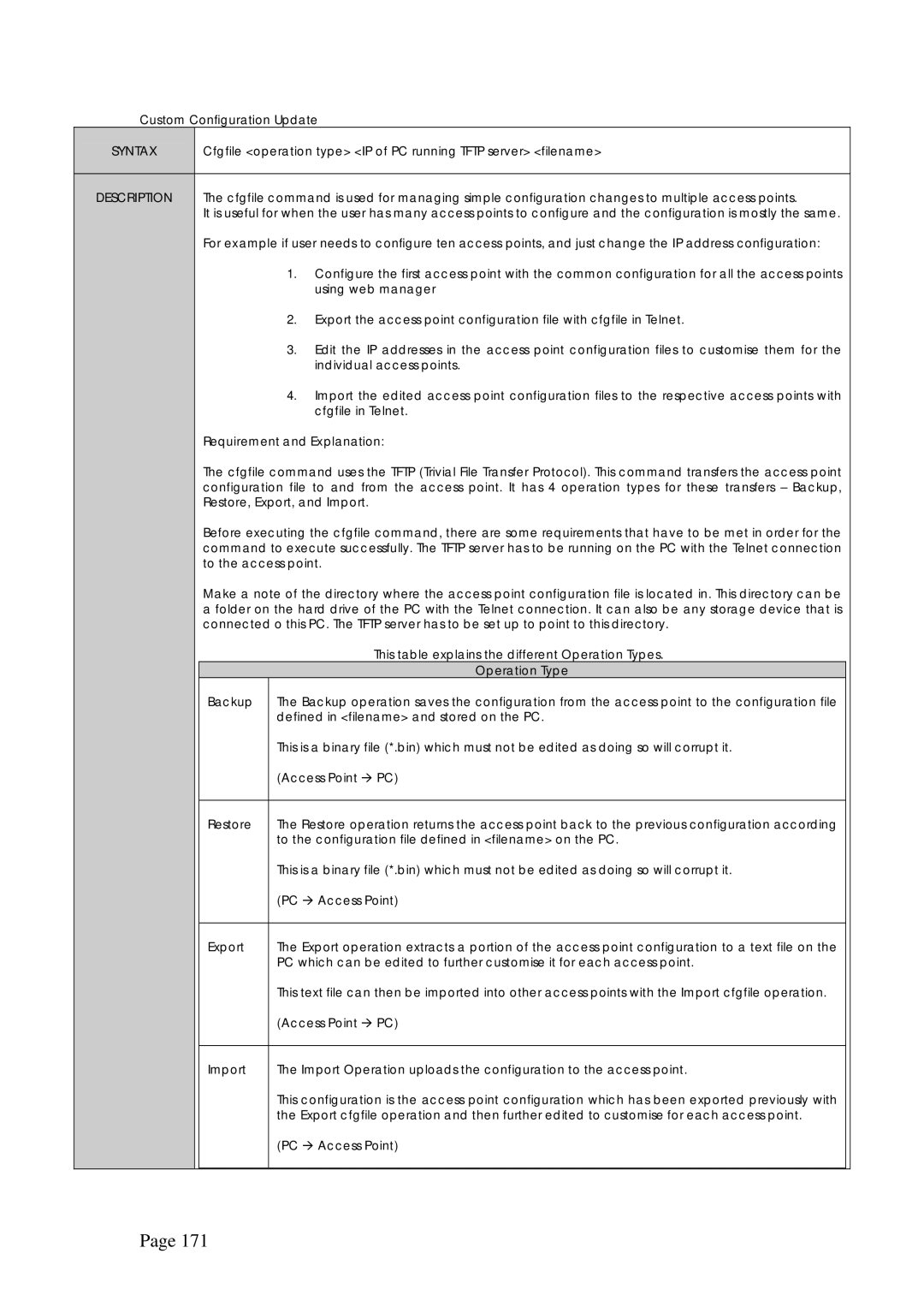
Custom Configuration Update
SYNTAX
DESCRIPTION
Cfgfile <operation type> <IP of PC running TFTP server> <filename>
The cfgfile command is used for managing simple configuration changes to multiple access points.
It is useful for when the user has many access points to configure and the configuration is mostly the same.
For example if user needs to configure ten access points, and just change the IP address configuration:
1.Configure the first access point with the common configuration for all the access points using web manager
2.Export the access point configuration file with cfgfile in Telnet.
3.Edit the IP addresses in the access point configuration files to customise them for the individual access points.
4.Import the edited access point configuration files to the respective access points with cfgfile in Telnet.
Requirement and Explanation:
The cfgfile command uses the TFTP (Trivial File Transfer Protocol). This command transfers the access point configuration file to and from the access point. It has 4 operation types for these transfers – Backup, Restore, Export, and Import.
Before executing the cfgfile command, there are some requirements that have to be met in order for the command to execute successfully. The TFTP server has to be running on the PC with the Telnet connection to the access point.
Make a note of the directory where the access point configuration file is located in. This directory can be a folder on the hard drive of the PC with the Telnet connection. It can also be any storage device that is connected o this PC. The TFTP server has to be set up to point to this directory.
|
| This table explains the different Operation Types. |
|
| Operation Type |
| Backup | The Backup operation saves the configuration from the access point to the configuration file |
|
| defined in <filename> and stored on the PC. |
|
| This is a binary file (*.bin) which must not be edited as doing so will corrupt it. |
|
| (Access Point Æ PC) |
|
|
|
| Restore | The Restore operation returns the access point back to the previous configuration according |
|
| to the configuration file defined in <filename> on the PC. |
|
| This is a binary file (*.bin) which must not be edited as doing so will corrupt it. |
|
| (PC Æ Access Point) |
|
|
|
| Export | The Export operation extracts a portion of the access point configuration to a text file on the |
|
| PC which can be edited to further customise it for each access point. |
|
| This text file can then be imported into other access points with the Import cfgfile operation. |
|
| (Access Point Æ PC) |
|
|
|
| Import | The Import Operation uploads the configuration to the access point. |
|
| This configuration is the access point configuration which has been exported previously with |
|
| the Export cfgfile operation and then further edited to customise for each access point. |
|
| (PC Æ Access Point) |
|
|
|
Page 171
